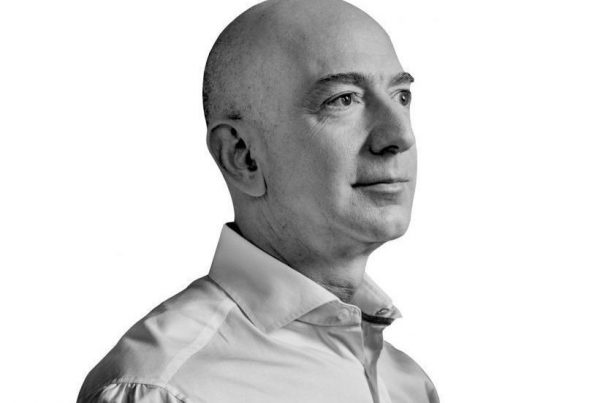5 examples of truly ethical companies and how it is reflected in their marketing
Consumers have become more socially conscious than ever before. In today’s marketplace, it has therefore become increasingly more critical for brands to examine their impact on the world.
Studies have proven that 64% of today’s consumers are made up of belief-driven buyers who want brands to deliver on not just products, but also on societal issues that make a valuable contribution towards the common good.
73% of millennials say they are willing to pay extra for brands that demonstrate a commitment towards sustainability. And 75% of customers claim they are likely to take negative action against a company that shows signs of being socially or environmentally irresponsible — whether it involves posting on social media, posting a negative review, abandoning their brand or boycotting their brand entirely.
Given that brand trust is the number-one way for a company to turn its customers into advocates, ethical marketing has become a surefire tactic for companies to build trust with customers in a way that will promote both long-term customer relationships and dividends. In fact, businesses are reportedly more trusted than governments on average, according to both UK and US respondents.
As such, ethical marketing can be seen as a way for companies to adopt practices that will allow both their business and their social or environmental initiatives to flourish.
In this article, we’ll review the models of 5 companies whose truly ethical practices are helping them both win and retain the market share of their customer base. We’ll then recap some of the main pillars companies should consider if they want to follow in their tracks.
1. Patagonia
“Fast fashion” supergiants (such as H&M and Zara) boast production cycles that release new clothing on a weekly basis. While this trend has made purchasing inexpensive, yet disposable fashion a common norm in most countries, it has also caused global textile consumption to skyrocket by 400% in the past 20 years. This model has also increased environmental pollution levels and the number of sweatshop labour camps in several developing countries.
On the flip side, popular outerwear brand Patagonia has built their brand around the idea that their consumers should be encouraged to “buy less”. Their unconventional approach to marketing has helped establish their reputation as a notably ethical and environmentally conscious company.
In 2011, Patagonia first captured the attention of shoppers with their Common Threads Initiative. With this campaign, the company used stark, minimalist imagery and bold lettering (including the all-caps slogan “DON’T BUY THIS JACKET”) to engage their customers, all while encouraging them to address the issue of consumerism and consider lightening their environmental footprint.
Alex Weller, Patagonia’s European Marketing Director, claims that the message behind this campaign is simply: “Don’t buy this jacket if you don’t need it.” In all, Patagonia has made it their brand mission to challenge buyers’ relationship with mass consumption and encourage them to become more conscientious consumers.
To further drive brand loyalty from environmentally conscious buyers, Patagonia has also built its brand marketing to support various sustainable initiatives. Some of these include:
- Providing free repairs on lifetime warranty products
- Using organically grown cotton for their materials, in an effort to avoid using pesticides
- Donating 1% of their annual sales to environmental causes

2. Toms
Founded in 2006, TOMS is a well-known footwear and apparel brand. Founder and owner Blake Mycoskie started the business after returning home from an eye-opening trip to Argentina. During his travels, he was met with local residents who were living without shoes in impoverished neighbourhoods. This sparked what would become his mission to provide sustainable footwear to communities in need.
TOMS is unique in that it has centralised its branding around its commitment to environmental and social philanthropy, ensuring that consumers are aware of its brand values each time they purchase one of their products.
TOMS is the first instance of a “one-for-one” company, meaning that they donate a pair of shoes to a child in a developing country each time one of their products is purchased. To date, this model has enabled them to donate nearly 100 million pairs of shoes to people in need.
They have since expanded this programme to provide impoverished communities with additional necessities. Profits from their sales are now also allocated to helping those in developing countries pay for eye care and vision restoration. To date, they have helped around 780,000 people successfully restore their eyesight.
TOMS also partnered up with Water For People to help provide safe water to those in developing countries — an initiative that has provided communities with over 722,000 weeks worth of safe water to those without access.

3. Conscious Coffees
It’s probably safe to say that Conscious Coffees has solidified its reputation as a brand that has completely embodied the principles of ethical marketing and production.
With a commitment to both ethical production processes and fair-trade, Conscious Coffees has established a wide range of sustainable and socially conscious initiatives.
This includes its CAFE Livelihoods Programme, which has been designed to help coffee growers in South American countries (such as El Salvador, Mexico, Guatemala and Nicaragua) learn how to own and manage their own coffee businesses. These efforts are coupled with their contributions towards the USAID-funded Farmer-to-Farmer initiative — a programme designed to help South American coffee growers become better at their trade, thereby helping them to undergo fair-trade and ethical practices with North American suppliers.
Conscious Coffees also regularly donates coffee to their Community Cycles Programme — an initiative run by fellow cyclists who help other cyclists repair, refurbish and maintain both old and used bicycles.

4. Dr. Bronner’s
Known as one of the first certified-organic soap brands to break into the worldwide market, Dr. Bronner’s now boasts a total of $65 million in sales and produces the top-selling organic liquid soap in the US.
The start of their current business came in 1948, when third generation soap maker Emanuel Bronner created product labels with the slogan “ALL-ONE!” and his personal philosophy promoting “unity and peace”. The product packaging continues to display this text, also referred to as his “Cosmic Principles”.
The family torch has since been passed to David and Michael Bronner, who have made it their mission to carry on their grandfather’s legacy and position the brand as “an engine to advance positive social change, while promoting the importance of choosing organic, sustainable and ethically produced products.”
Dr. Bronner’s became one of the first brands to certify its soaps, lotions and balms under the USDA National Organic Program in 2003. It has also furthered a commitment to sourcing raw materials from certified Fair Trade and organic products, with an overall aim to use their marketing efforts to advocate for various different ethical initiatives — such as income equality, drug policy reform, animal rights and regenerative organic agriculture.
Another important component of the brand’s ethical marketing strategy is its equitable compensation structure — whereby executive pay is limited to only five times that of lower-level employees. Under these rules, CEO David Bronner only earns 5 times more than his lowest paid employee (around US $200,000 per year).
In the words of the Bronners: “Dr. Bronner’s isn’t just about soap, it’s about creating dialogue around the products we use as consumers and realising that each individual in the world can make a difference.”
5. Lush
Popular UK-based cosmetics retailer Lush has long-since been celebrated for positioning themselves as an ethically-run company.
Upon visiting their official website, their mission statement reads as follows: “No company should be trading from an unethical position and society has a right to expect as the norm fairness and resource stewardship from the companies that supply them.”
Basically, this enforces their belief that ethical marketing should be common practice in the retail space.
Lush also strictly prohibits animal testing on all of their products and provides customers with a “five-pot programme”, where they are given a free product if they bring back five of their empty containers for safe recycling.
How can future brands adopt more ethical marketing initiatives?
Companies that want to establish a more ethical marketing plan should start by analysing their company, customers and overall supply chain. From there, it is important for businesses to pinpoint the right ways their brand can source products sustainably, leverage green initiatives to enhance their marketing and continue to generate profit.
While there are no set rules to ethical advertising, some of the most important points to consider include:
Sustainability efforts: As we’ve outlined in this article, sustainability has found itself at the core of many different business models in today’s marketplace.
Telling the truth: This means being fully honest and transparent about a company’s brand and products — including where customers’ money is going, who is being paid to advertise products and even whether a company has ever been engaged with unethical business practices. Remember — the more your customers can trust you, the better this positions you to advocate for social or environmental causes that will require their support. 81% of consumers say that the ability to trust a brand to do the right thing can make or break their decision to support them.
Sincerity: This means no fake news and no exaggerating or exploiting emotions from customers. Customers are more likely to respond positively to a brand when they can trust that their contributions are going towards a just cause, rather than from a place that tries to evoke negative emotions or guilt.
In summary, brands that show they care about greater causes are more likely to make a difference and successfully retain their customer base. Companies that bake societal issues into their branding and business strategy are more likely to facilitate trust between their brand and their customers. This tactic has become one of the most powerful ways for companies to create genuine buyer experiences and strengthen their overall brand identity.







Recent Comments